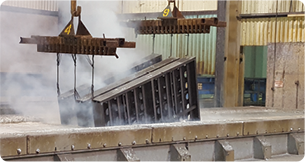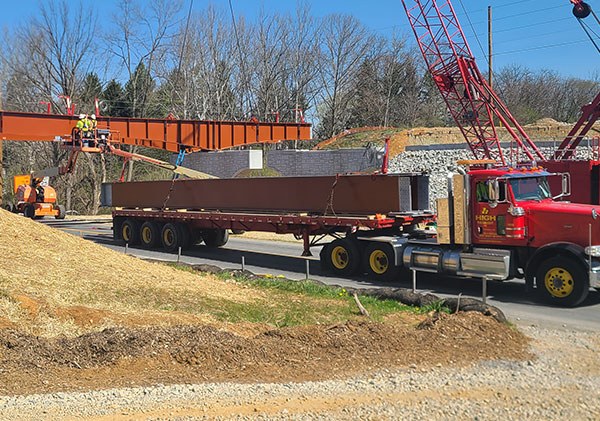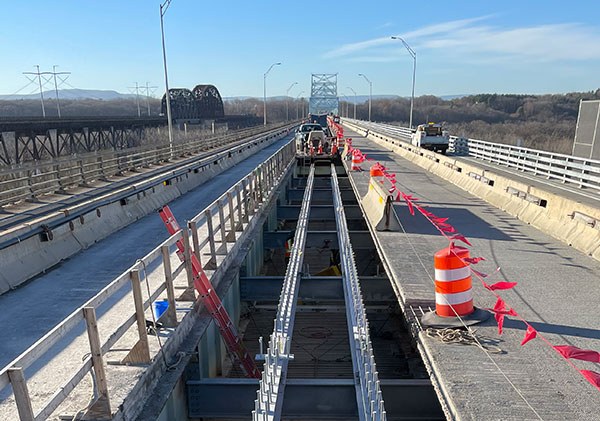With its unique blend of state-of-the-art engineering and architectural detail, the Lane Avenue Bridge provides a dramatic gateway to the main campus of The Ohio State University in Columbus, Ohio. The bridge, which spans the Olentangy River, began construction in 2002 and opened in November 2003. The cable-stayed structure replaced a crumbling and obsolete concrete arch bridge built in 1919.
The double-span, steel and concrete structure is 370 feet long, 112 feet wide, and carries six 12-foot-wide vehicular lanes and two 12-foot wide sidewalks with spiral stairways to pedestrian underpass plazas along the bank of the river. The pier towers stand 145 feet above the river and hold ten multi-strand cables on each side of the bridge to support the deck. More than 36 miles of post-tensioned cable strands are embedded within the concrete to strengthen the deck and edge girders.

The bridge has stood the test of time for nearly twenty years, in part thanks to the choice to hot-dip galvanize all of the steel components on the project. The primary structure includes 22-ton galvanized steel anchor boxes that hold up the concrete towers of the cable stay design. The 88’ foot long floor beams are all hot-dip galvanized going across the width of the bridge. On the top side, the cables, cable casing, and all the heavy-duty ornamental rails are galvanized for maximum protection in the harsh Midwest climate.
The design team and owners wanted the bridge to be maintenance free as to avoid any future closures, as the road is a critical connection on the Ohio State campus on either side of the river. To date, the team has gotten their money's worth as there are no signs of corrosion and no dollars spent maintaining the zinc coating for nearly twenty years of service life.
The Franklin County Engineer's office is responsible for inspecting and maintaining 359 bridges throughout the most populated county in Ohio. The Lane Avenue Bridge has been a model for the county, as well as the entire region, in terms of bridge design for overall longevity and maintenance cost savings. The corrosion protection and durability of hot-dip galvanizing continues to play a pivotal role in the overall success of this landmark bridge. There have been no maintenance costs on the nearly twenty-year-old bridge due to corrosion of steel. The County continues to realize the short term and long-term benefits of hot-dip galvanizing on this bridge and on bridge replacement projects moving forward.
"The Lane Avenue Bridge has stood the test of time for nearly twenty years, thanks to hot-dip galvanizing."






 SEE MORE
SEE MORE

